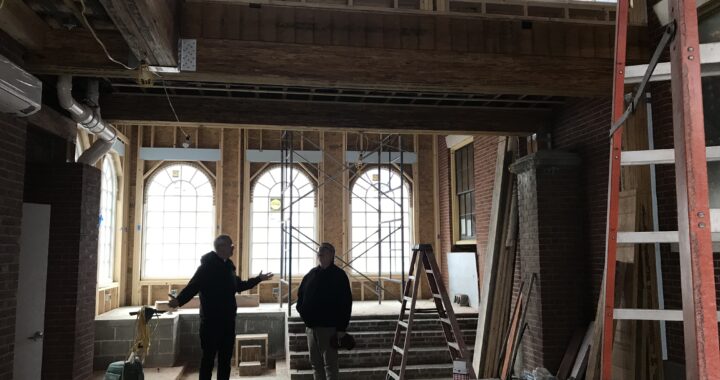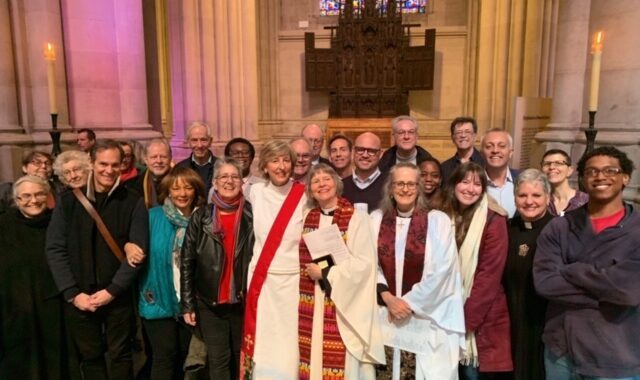- We want to attract new, young, unchurched people, BUT they must be inspired by our obsolete spaces and outdated look.
- “Oh, that stage. We used to have fun family events and talent shows. It was fun. We don’t do that anymore.”
- We have lots of unused space people could use, BUT it’s dark and musty.
- We are open and welcoming to all! Unless you cannot navigate stairs. It would be nice to have an elevator or universal accessibility… But we didn’t need it in the ‘50s.
We live in spaces with updated kitchens and bathrooms, and colors that change over time, especially when we want someone to buy it! That sensibility disappears in church.
In times of great change, learners inherit the earth, while the learned find themselves beautifully equipped for a world that no longer exists. – Eric Hoffer
What forces most congregations to conduct a capital campaign is failure or approaching failure- A failing roof, boiler, carpeting, stained glass – A failing foundation, mortar between bricks and stones and bell towers – Rotting wood and crumbling plaster. The standard communal response? – “Let’s fix these things to avoid catastrophe, and buy ourselves another 20 years.”
Many churches, clergy and lay leaders are learning that a successful capital campaign is more than tackling deferred maintenance and debt. It is an opportunity to think big and ask, “what assets do we have to offer our community inside and outside of our doors?” Responding to the now and the future takes faith, imagination, research, community engagement, risk and a spirit of adventure.
If there is one thing we have learned from the Covid pandemic, it’s that we can change if we have no other choice.


